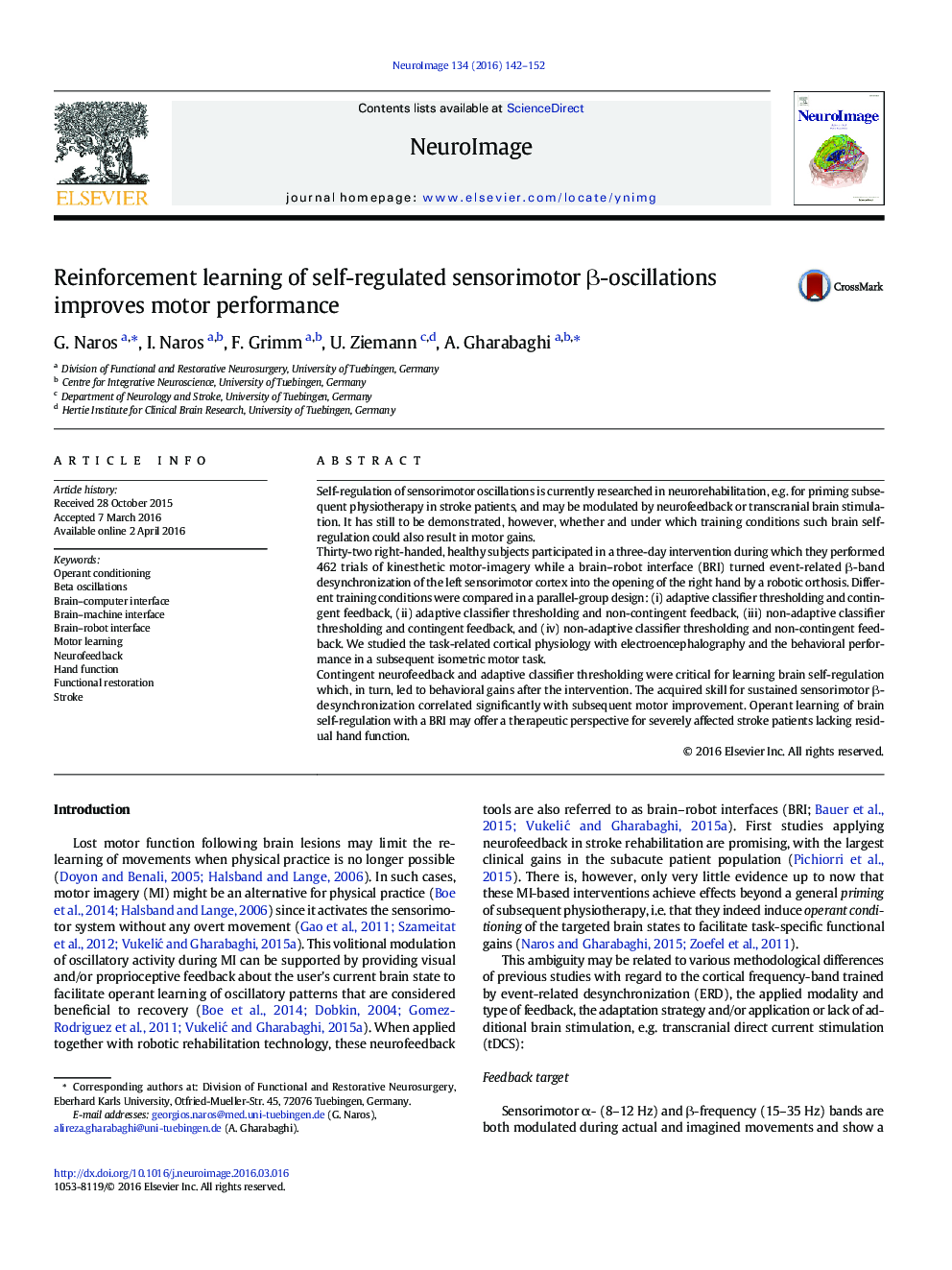| کد مقاله | کد نشریه | سال انتشار | مقاله انگلیسی | نسخه تمام متن |
|---|---|---|---|---|
| 6023301 | 1580874 | 2016 | 11 صفحه PDF | دانلود رایگان |

- Self-regulation of sensorimotor oscillations could be learned within a short-term intervention.
- Contingent neurofeedback and performance-adaptive classifier thresholding were critical for learning brain self-regulation.
- Operant learning of sensorimotor desynchronization led to behavioral gains after the intervention.
- The acquired skill for sustained sensorimotor β-desynchronization correlated significantly with subsequent motor improvement.
Self-regulation of sensorimotor oscillations is currently researched in neurorehabilitation, e.g. for priming subsequent physiotherapy in stroke patients, and may be modulated by neurofeedback or transcranial brain stimulation. It has still to be demonstrated, however, whether and under which training conditions such brain self-regulation could also result in motor gains.Thirty-two right-handed, healthy subjects participated in a three-day intervention during which they performed 462 trials of kinesthetic motor-imagery while a brain-robot interface (BRI) turned event-related β-band desynchronization of the left sensorimotor cortex into the opening of the right hand by a robotic orthosis. Different training conditions were compared in a parallel-group design: (i) adaptive classifier thresholding and contingent feedback, (ii) adaptive classifier thresholding and non-contingent feedback, (iii) non-adaptive classifier thresholding and contingent feedback, and (iv) non-adaptive classifier thresholding and non-contingent feedback. We studied the task-related cortical physiology with electroencephalography and the behavioral performance in a subsequent isometric motor task.Contingent neurofeedback and adaptive classifier thresholding were critical for learning brain self-regulation which, in turn, led to behavioral gains after the intervention. The acquired skill for sustained sensorimotor β-desynchronization correlated significantly with subsequent motor improvement. Operant learning of brain self-regulation with a BRI may offer a therapeutic perspective for severely affected stroke patients lacking residual hand function.
Journal: NeuroImage - Volume 134, 1 July 2016, Pages 142-152